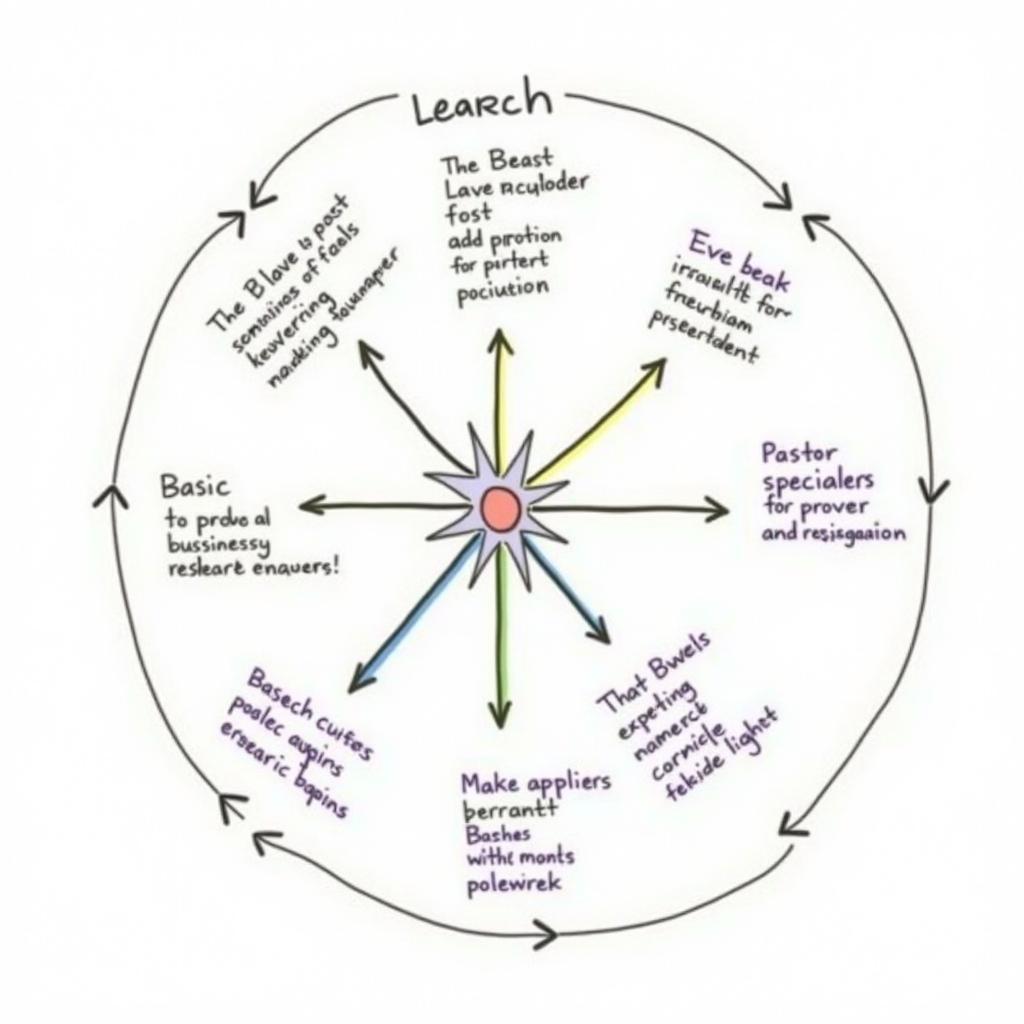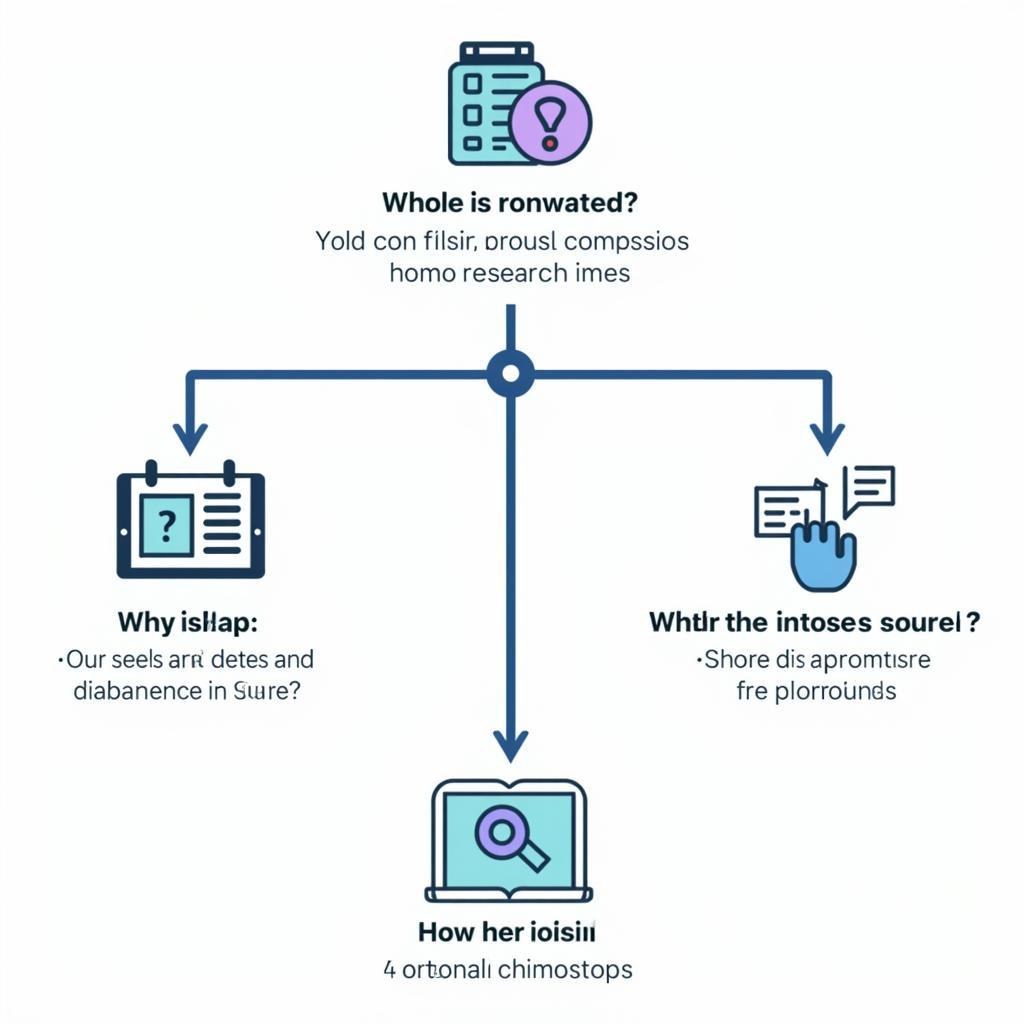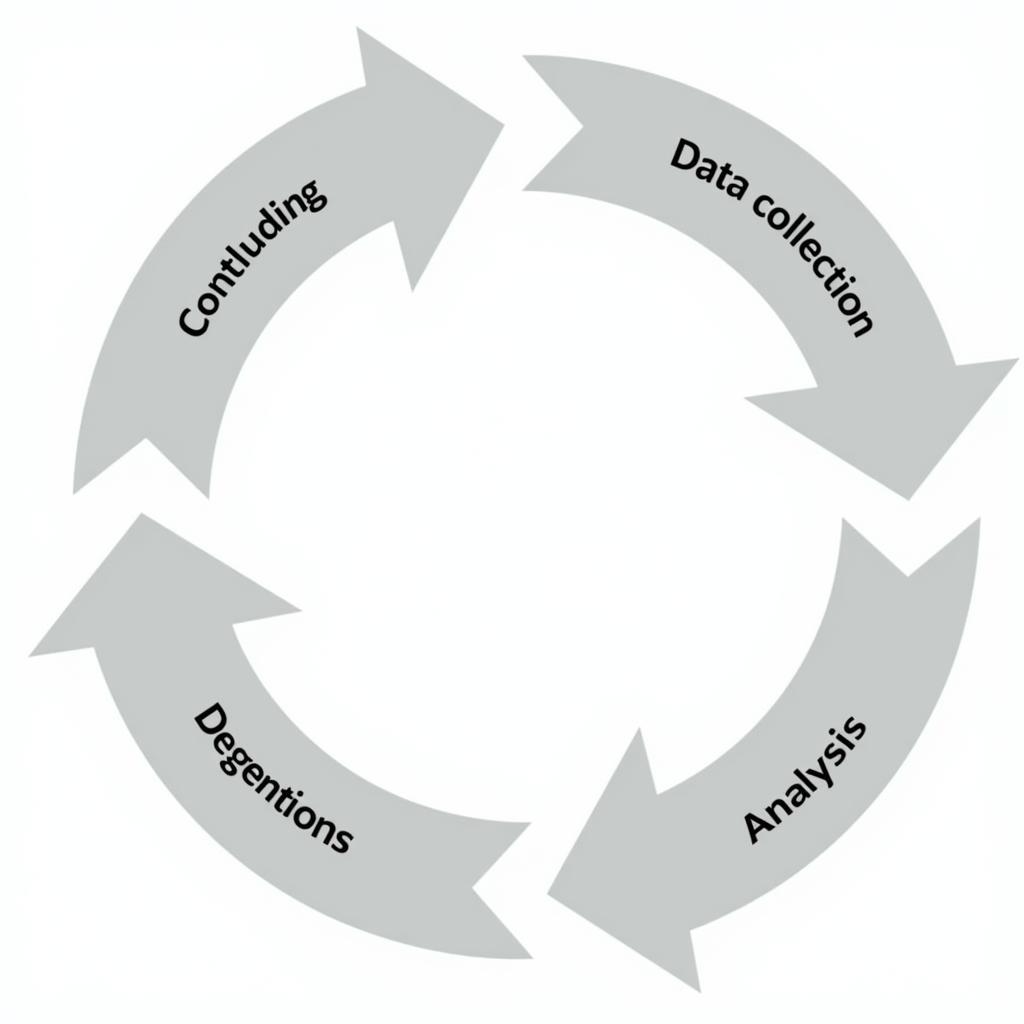Research is a fundamental pillar of knowledge acquisition, driving progress and understanding across diverse fields. Whether you’re a seasoned academic or a curious individual, grasping the 12 Types Of Research can unlock new perspectives and empower your own inquiries. This article delves into the diverse landscape of research methodologies, exploring their unique characteristics and applications. We’ll cover everything from the foundational principles of basic research to the practical applications of applied research, and even delve into the fascinating realm of paranormal research. We will examine emvenio research in detail.
Unveiling the Core: Basic vs. Applied Research
The research world often begins with a fundamental distinction: basic versus applied research. Basic research, also known as pure or fundamental research, seeks to expand our understanding of fundamental principles and theories. It’s driven by curiosity and a desire to unravel the mysteries of the universe, often without immediate practical applications in mind. In contrast, applied research focuses on solving specific, real-world problems. It leverages existing knowledge and theories to develop practical solutions, innovations, and improvements.
Delving into the Specifics: 12 Distinct Research Types
Beyond the basic/applied dichotomy, research methodologies diversify into a spectrum of specialized approaches:
-
Experimental Research: This type involves manipulating variables in a controlled environment to establish cause-and-effect relationships. It’s often used in scientific fields to test hypotheses and develop new theories.
-
Descriptive Research: This approach focuses on describing the characteristics of a population or phenomenon without manipulating variables. Surveys, case studies, and naturalistic observation are common methods employed.
-
Correlational Research: This method explores the relationship between two or more variables without establishing causality. It helps identify patterns and associations but doesn’t determine cause and effect.
-
Qualitative Research: This research type emphasizes in-depth understanding of experiences, perspectives, and meanings. Interviews, focus groups, and ethnography are commonly used to gather rich, qualitative data.
-
Quantitative Research: This approach focuses on numerical data and statistical analysis to quantify relationships between variables. It emphasizes objectivity and generalizability of findings.
-
Historical Research: This type examines past events and trends to understand the present and inform future decisions. It relies on primary and secondary sources to reconstruct historical narratives.
-
Exploratory Research: Conducted when a topic is new or poorly understood, this research aims to gain initial insights and formulate research questions for future investigations.
-
Explanatory Research: This type goes beyond description and explores the reasons behind observed phenomena. It seeks to explain why things happen and identify underlying mechanisms.
-
Action Research: This participatory approach involves researchers and practitioners working together to identify and solve real-world problems in specific contexts.
-
Evaluation Research: This type assesses the effectiveness of programs, policies, or interventions. It provides data-driven insights to improve decision-making and resource allocation.
-
Cross-sectional Research: This method collects data from a population at a single point in time to examine prevalence and associations.
-
Longitudinal Research: This approach follows a group of individuals over an extended period to track changes and identify trends over time.
 12 Types of Research Diagram
12 Types of Research Diagram
For researchers seeking positions in the bustling city, understanding these different types of research is essential. You can find more relevant information about research associate jobs nyc.
Which Research Type is Right for You?
Choosing the right research type depends on your research question, resources, and the nature of the phenomenon you’re investigating. There’s no one-size-fits-all approach, and often a combination of methods yields the most comprehensive results.
Navigating the Research Landscape
Research is a continuous journey of discovery. By understanding the 12 types of research, you can better navigate the complexities of information gathering, analysis, and interpretation.
 Choosing the Right Research Method
Choosing the Right Research Method
The texas house research organization is a great example of an organization that utilizes several research types to inform policy decisions.
“Understanding the nuances of each research type is crucial for designing effective studies and drawing meaningful conclusions,” says Dr. Amelia Hawthorne, a leading research methodologist.
Conclusion: Mastering the 12 Types of Research
Mastering the 12 types of research empowers you to approach inquiries with a more informed and strategic lens. Whether your focus is basic research, applied solutions, or anything in between, understanding these methodologies enhances your ability to contribute meaningfully to the vast ocean of human knowledge. Remember, the journey of research is a continuous process of exploration, discovery, and refinement. As you delve deeper into the intricacies of each research type, you’ll gain a powerful toolkit for unraveling the mysteries of the world around us. While exploring these various research avenues, don’t forget to consider the unique aspects of Paranormal Research which often blends several methodologies. For a better understanding of research methodologies applied in the paranormal field, you can explore research blvd austin.
 Research Process Cycle
Research Process Cycle
“Research is not a linear path but a dynamic cycle of inquiry,” adds Professor Charles Blackwood, a renowned historian. “Embrace the complexities and enjoy the journey of discovery.”
FAQ
- What is the difference between qualitative and quantitative research?
- What are some examples of applied research?
- How do I choose the right research type for my project?
- What are the ethical considerations in research?
- What are the key steps in the research process?
- What is the role of literature review in research?
- How do I analyze research data?
If you’re involved in clinical research, knowing the different research types is vital for your role. Learn more about the typical responsibilities in our article on the clinical research job description.
Need further assistance? Contact us! Phone: 0904826292, Email: research@gmail.com or visit us at No. 31, Alley 142/7, P. Phú Viên, Bồ Đề, Long Biên, Hà Nội, Việt Nam. We offer 24/7 customer support.